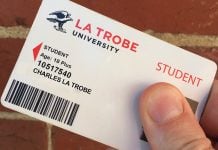If you’re an international student, it’s important to familiarise yourself with our list of current scams so you know what to look out for.
If you are contacted by a scammer:
- Do not continue the conversation
- Do not send money
- Do not reveal personal information
- Do connect with University support services (see details at the end of this article)
- Do report suspicious behaviour to police and Scamwatch
- Do talk to friends and family about the incident for support
- Do contact your Consulate for advice and to report
How to report: In an emergency call 000. For all non-emergency reporting call the Police Assistance Line (PAL) on 131 444.
Get help
If you think you’ve been scammed, don’t feel embarrassed or helpless – ask for help and protect yourself from further harm.
If you have been a victim of a crime (such as fraud), report it to your local police. If you need immediate support, ring emergency on 000.
You can also connect with university services:
Safer Community
Contact Safer Community, whenever you have safety or wellbeing concern for yourself or someone else, and you want confidential and free advice about what to do. Ring 03 9479 8988 or email: safercommunity@latrobe.edu.au or submit the online reporting form (you have the option to remain anonymous).
ASK La Trobe and International Student Support
Throughout your time at La Trobe, you’re always welcome to seek advice, information and support from ASK La Trobe and the International Student Support team. If you’re not sure who to contact for help, start with ASK La Trobe and the helpful team will support you, and connect you with other services as appropriate. These teams can help you with academic, social, financial, cultural and pretty much any issue you encounter. It’s important to seek help early if you experience any difficulties. Visit the ASK La Trobe website for contact information.
24-hour international student support hotline
If you need help after-hours (at night, during public holidays or on the weekends) call 24-hour international student support hotline 1800 758 360 – we want to help you with anything you might be worried about.
Current scams:
- Fraudulent calls about Australian visa/immigration status
- Chinese authority impersonators
- Rental scams
- Fee scams – never pay tuition fees to a third party
- Social media and online scams
- Job scams
Fraudulent calls about Australian visa/immigration status
Some Indian nationals, who have recently arrived in or migrated to Australia, have been receiving fraudulent calls from unauthorised persons about their Australian visa/immigration status. At times the callers have even spoofed the phone numbers allotted to the High Commission of India, Canberra or its Consulates in Sydney, Melbourne, Perth or their Service Provider viz., M/s VFS Global.
Please be aware that these calls are not made by any authorised officials from these offices. It may be noteworthy that the Indian High Commission or its Consulates usually do not deal with the immigrant Indians regarding their Australian visa/immigration status.
The Department of Foreign Affairs & Trade, Government of Australia and Australian Federal Police have been informed about these suspicious calls. Since this is a matter concerning Australian Visa, we suggest that the incidents should be reported to local police authorities and a copy of the report be forwarded to visa@hcindia-au.org. Guidelines are also available online.
The Consulate General of India in Melbourne invites all international students to register your arrival with them from the online form. This will help the Consulate to serve you better, and keep you informed of the latest news and activities relating to India. You can also follow up on Facebook for upcoming news, events and activities.
Chinese authority impersonators
There is a rising number of telecom fraud cases targeting Chinese students overseas. Scammers are impersonating Chinese government authorities or military officials to extort money from Chinese students. The scammers tell the victim they have been implicated in a crime and need to pay money to avoid deportation. As the scam escalates, through coercion, they get victims to stage their own fake kidnapping. The families involved are led to believe the victim is in danger and a ransom needs to be paid to secure their release.
Rental scams
StudyMelbourne has informed us of rental scams impacting international students. This issue involves students sub-letting accommodation with rent then not being passed on to the landlord. Students are then threatened with eviction or offered alternative accommodation, by the same sub-letters, with the promise of recovering rent.
Anyone looking for a place to rent should know the risks and watch out for rental scams. Avoid paying by cash, money transfer services, or directly into a bank. See more tips.
Fee scams – never pay tuition fees to a third party
There have been several reports of a fee scam targeting at University students in Australia. The scam involves a friend recommending a third party who provides a fee discount – presumably on the assumption that fees are negotiable and the third party can bargain hard.
Students are advised to pay their fees less 10% to the third party. Following this payment, the student receives receipts of fee payment made by credit card – presumably stolen. The credit card holder then disputes the payment, and the payment is reversed. The student has a debt from the fee department at University as no payment has been received by the University.
To be safe with your money, remember:
- La Trobe University does not require or ask you for your bank account information – including your account number or BSB (never give your account number or BSB number to anyone you don’t know over email).
- La Trobe University does not provide fee discounts to any third party so please pay the fees directly with the University online
- Check any documents to make sure personal information is not included before giving them out to people online.
- If you suspect an email is fake or spam, delete it without opening it.
- Keep anti-virus and anti-spam software up-to-date.
- Don’t click on links in emails – use your bookmarks to visit your bank’s website, or type the address into your browser.
- Check your bank and credit card account statements regularly.
- If you think you may have provided financial information like credit card numbers to a phisher, contact your financial institution or Credit Card Company immediately.
- Banks in Australia do not send emails requesting you to confirm, update or disclose your confidential banking information
Social media and online scams
Online forums and social media sites are great for keeping in touch with friends and family, but be careful about what information you put online and who you allow to see it.
Here are a few tips to protect yourself from online Crime:
- Don’t accept friend requests or invitations from people you don’t know – you could be making yourself and your friends more vulnerable to scammers.
- If something seems unusual or dodgy, ask ‘is this for real?’ – get a second opinion from a friend, staff member or family member.
Job Scams
Are you planning to gain some work experience in Australia?
International students are limited to 40 hours of work per fortnight when your course is in session and unlimited hours in out of session periods. Work conditions for your visa can be found on the Department of Home Affairs website.
It’s essential to understand your rights in the workplace.
- There are minimum pay rates that you must be paid for all the time that you work.
- You must get a payslip each time you are paid.
- If you are being paid less than the minimum rate or not receiving a payslip, your employer is breaking the law.
There are other rules about work in Australia, such as the times you can work and how often you have a break. To find information about the minimum pay rates and entitlements for your job Fair Work Ombudsman. Getting help to resolve a workplace issue will not automatically affect your student visa.
Do:
- Check and follow the conditions for your visa. Check your visa conditions on VEVO.
- Remember it is against the law for a person to ask you to pay money for a job or a visa. Be wary of job offers that require you to make an upfront payment or give back some of your pay.
- Keep your passport and travel documents with you. It is a crime for your employer or anyone else to take your passport or personal items from you.
- Adhere to local laws and regulations, avoid areas with poor security, plan personal trips carefully and be cautious about engaging in high-risk activities. Study Australia is a great resource with tips for staying safe in Australia as an international student.
- Know that your employer can’t cancel your visa, even if it’s been breached. Only the Department of Home Affairs can grant, refuse or cancel visas.
- Seek help if your employer threatens to cancel your visa, report you to the Department or force you to perform work duties that you are not comfortable doing. Find information about workplace conditions at the Fair Work Ombudsman.
- Maintain regular communication with your family members and share the information of your Australian phone number address, school name and major, student ID number and at least two emergency contact numbers with your home country in case of emergencies.
- Know that it is a serious criminal offence for an employer to force you to work by threatening or deceiving you, restricting your freedom to leave or forcing you to pay off an unexplained debt. This behaviour should be reported to the Australian Federal Police on 131 237.
Don’t:
- Enter into work arrangements with people who promise permanent residence in Australia. Only the Department of Home Affairs can grant permanent residency.














